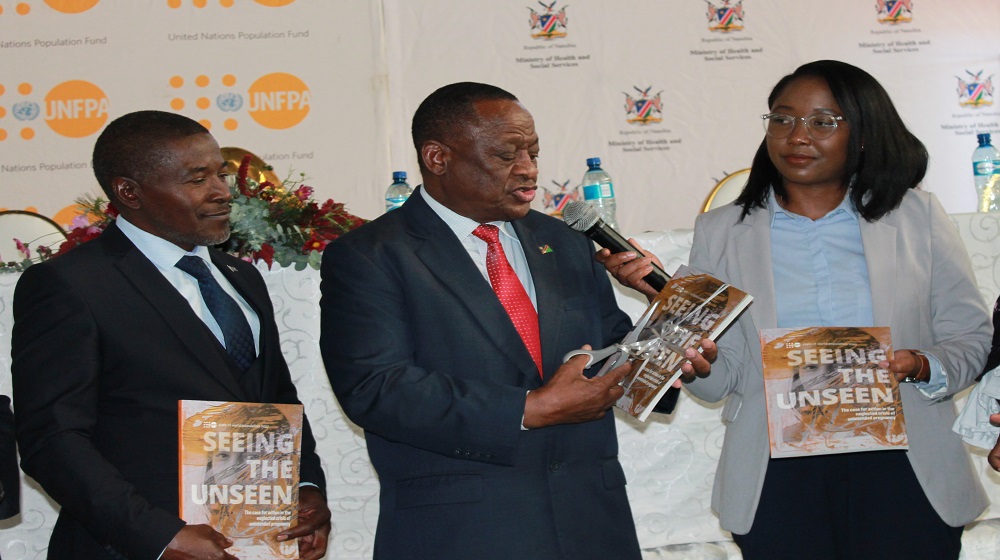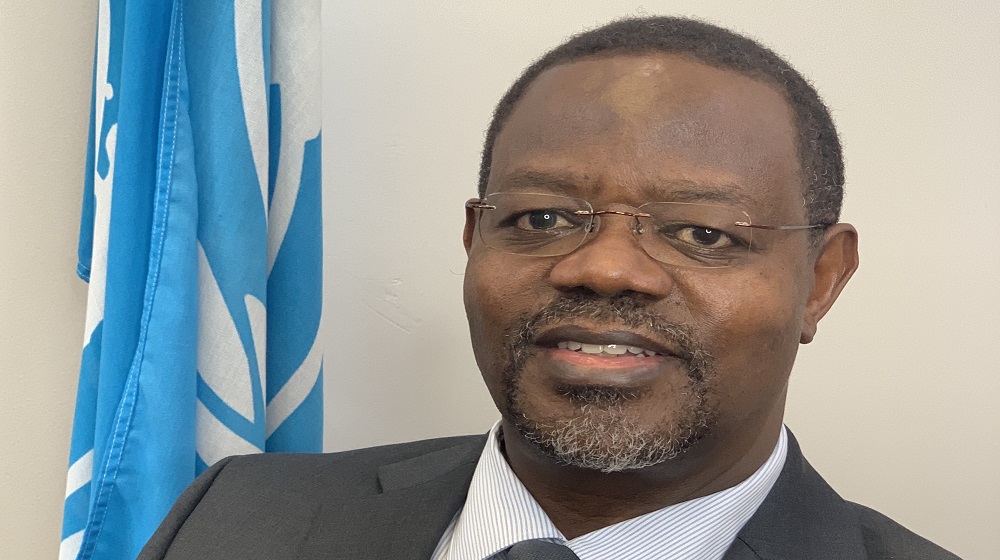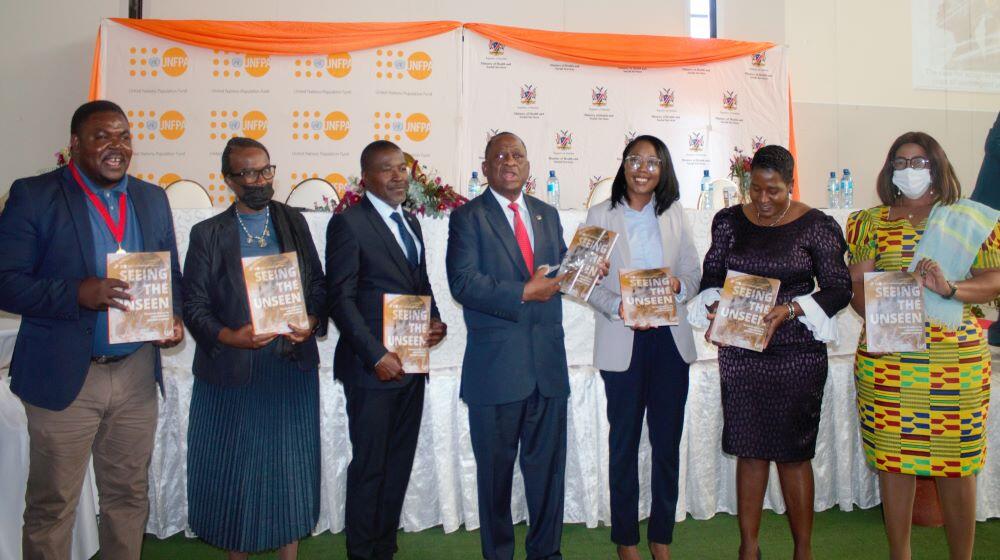
RUNDU, Namibia − On World Population Day 11 July 2022, the United Nations Population Fund (UNFPA) Namibia Country Office in partnership with the Ministries of health, education, youth, National Planning Commission (NPC) and other partners launched the State of World Population Report 2022 in Rundu.
The report titled “Seeing the Unseen: The case for action in the neglected crisis of unintended pregnancy” has found that nearly half of all pregnancies worldwide – 121 million annually - are unintended.
The launch event generated intergenerational discussions around teenage pregnancy. The audience listened to adolescents and youth of Kavango East Region engage with representatives from key line ministries, civil society organisations, local leaders, and parents to share experiences, discuss policies that affect them, and share ideas on how to prevent teenage pregnancy in Namibia.
Launching the report, Hon. Dr. Kalumbi Shangula, Minister of Health and Social Services said, Namibia is among countries facing a high rate of teenage pregnancies.

The minister highlighted the complications related to pregnancy and childbirth that are the number one killers of girls aged 15 to 19 in developing countries. “The use of contraceptives in Namibia, among young people aged 15-19 is relatively low at 24%, while teenage pregnancy rate remains high at 19%.”
He added that access to information and contraceptives can save young people's lives. “To improve access to contraceptives, family planning services must be provided at all clinics, health centres, hospital casualty departments, outpatient departments and all the wards where female or male patients are admitted and at consulting rooms, as part of the sexual reproductive health and HIV integration services in health facilities and outreach services,” said the minister.
We have spoken enough. Now it is time for action because the scale of the problem demands concrete actions from every Namibian citizen, as the government alone cannot resolve this challenge.
“We have spoken enough. Now it is time for action because the scale of the problem demands concrete actions from every Namibian citizen, as the government alone cannot resolve this challenge,” Hon. Shangula urged.
Hon. Shangula said male involvement in family planning and contraceptive services is important, because their attitudes can contribute to the practices of healthy behaviour on matters of reproductive health. He urged parents to discuss sexual reproductive issues with children and guide them on how to overcome the transition period from childhood to adulthood.
UNFPA calls on policy makers and community leaders to work to prioritise urgent action to address unintended and adolescent pregnancy. It is time for us to See the Unseen.
Also speaking in a recorded message, Dr. Bannet Ndyanabangi, UNFPA East and Southern Africa Regional Director a.i. said unintended pregnancy has been an invisible crisis for far too long.
“UNFPA calls on policy makers and community leaders to work to prioritise urgent action to address unintended and adolescent pregnancy. It is time for us to See the Unseen”.
He emphasised that the hosting of the launch event in Kavango East gives an opportunity for all partners to assess the situation on the ground and pursue solutions to these challenges. “Indeed, we cannot proffer solutions without engaging those that are affected including those left furthest behind.”
The data from Namibia shows us that more teenage pregnancies are reported in rural areas in regions such as Ohangwena, Omusati and Kavango East. Close to three (3) out of 10 girls in Namibia drop out of school due to teenage pregnancies.
Below are some of the key recommendations from the intergeneration dialogue:
Adolescent and youth-friendly services should be accessible and available to all and should offer a variety of contraceptive methods. The limited choice and availability of contraceptive methods were noted with concerns.
Need for quality Life Skills-based HIV and Health Education.
Parental involvement is key to preventing teen pregnancy: parents should talk to their children about sexual relationships, sexually transmitted infections, HIV and contraceptives, as well as becoming advocates for adolescent sexual and reproductive health and rights issues in their families and communities.


